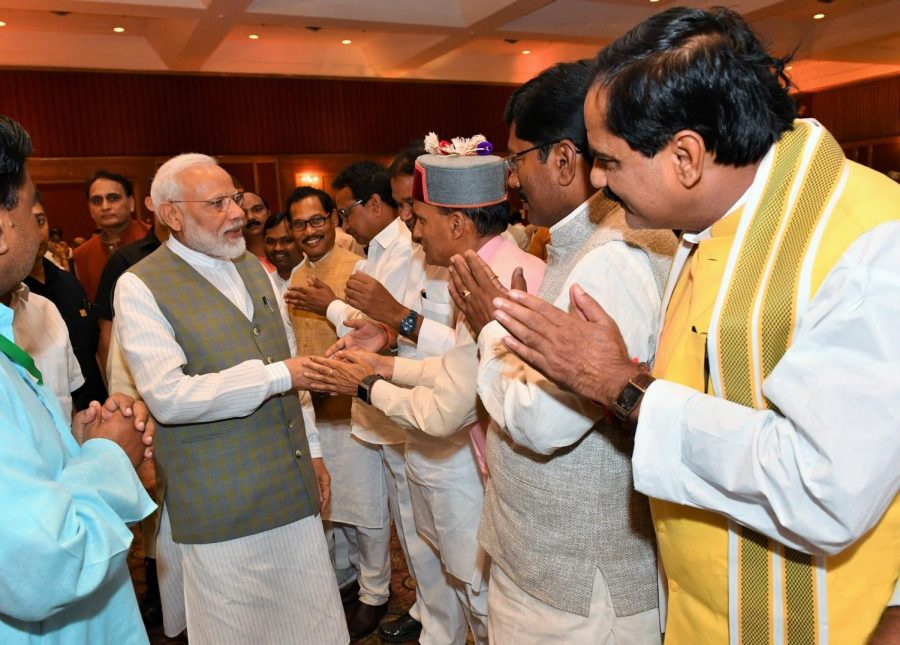In the last two months, India has been shaken by massive protests against two new policies put forth by the ruling Bhartiya Janata Party: the Citizenship Amendment Act (CAA) and the National Register of Citizens (NRC). These laws threaten to rip India from its secular roots by turning it into a nation exclusively for non-Muslims. The ensuing battle between the protesters and the government will likely decide the fate of the young democracy.
To contextualize, the CAA, which passed last December, gives refugees of six religious backgrounds — Hindus, Buddhists, Parsis, Christians, Sikhs, and Jains — a fast track to citizenship if they can prove that they have fled religious prosecution from three specific countries: Pakistan, Bangladesh, and Afghanistan. For these individuals, the road to citizenship is reduced to six years from the typical 12 years applicable to all other immigrants. Notably, this law does not extend to Muslim refugees from these same countries. That is problematic because as a secular republic, India cannot give preference to certain groups for citizenship. Moreover, this bill excludes other groups that legitimately need sanctuary including Muslim groups like the Ahmadis of Pakistan and the Rohingyas of Myanmar, as well as Hindu groups like Sri Lankan Tamils because they don’t come from these three specified nations.
The more menacing policy is the NRC which was originally implemented in the state of Assam, where residents had to provide documentation to prove their residency in the State dating back to 1971. The intent behind the exercise was to root out millions of illegal, Bengali-speaking Muslims who had migrated to Assam from Bangladesh. For the local BJP government, this exercise was largely a failure because a significant portion of the 1.9 million undocumented residents were identified as Hindus.
Despite this failure, the BJP, under Home Minister Amit Shah, wants to expand the NRC nationwide. This is particularly dangerous for India’s Muslim population, who as a largely impoverished group lacks proper documentation to prove their residency: for instance, 40 percent of Muslim children lack birth certificates. As a result, many people fear that the Hindu nationalist government may use the NRC as a tool to prevent undocumented Muslims from acquiring citizenship and thereby deny them access to fundamental rights.
In response to these government proposals, massive protests have erupted across India to overturn these policies. Whether on college campuses or in million-people long human chains, the passion and energy in the protests has been phenomenal. Indians of all religions and socio-economic backgrounds have joined the fight against the government.
Unfortunately, the government’s response has been brutal. Police have been known to beat up protesters with sticks and fire live ammunition into peaceful crowds. In the ensuing violence, more than 24 people have died, a majority of whom have been Muslims. Recently, government forces mounted an attack on Jamia Islamia University, where they destroyed property and assaulted students. Police have also stood idly by as radicals attacked students at Jawaharlal University and a bullet was fired into a crowd of college activists.
The fall of India into authoritarianism, intolerance and oppression must stop. Although strong internal forces are at work, external forces must also act to weaken the BJP and its destructive policies. Europe has already taken a step toward this: a resolution to condemn India’s laws has entered the European Parliament, but a vote scheduled for Feb. 6 was deferred. But more must be done to convince Prime Minister Narendra Modi to repeal both the CAA and NRC. The United States and its allies must act in unison to stop the world’s largest democracy from further deteriorating. Two key methods should be employed for this purpose: diplomatic channels and ending military exercises.
Because Modi has worked so hard to develop India’s foreign relations to boost its image, a condemnation from America and its allies would be bad publicity and force Modi to reconsider.
If diplomacy does not work, the US should try more drastic steps, such as ending all military exercises with India in which the armed forces of both countries train together. Considering India’s need for a powerful ally against China, which has five times its economic power and with whom India has a nasty border dispute, Modi would be foolish to anger America and may submit. Using some mixture of coercion and diplomacy, the BJP should hopefully back down.
The large-scale nature of the protests shows that secularism and liberalism are not lost causes in India. Nevertheless, they risk being destroyed by Modi’s powerful regime. In order to restore a once-strong democracy in a politically sensitive region, it is imperative that the United States and its allies support the protests by dwindling the power of the BJP. If America does not act soon, yet another beacon of democracy will be in darkness.
Arnav Mehra is a Collegian columnist and can be reached at [email protected].



















